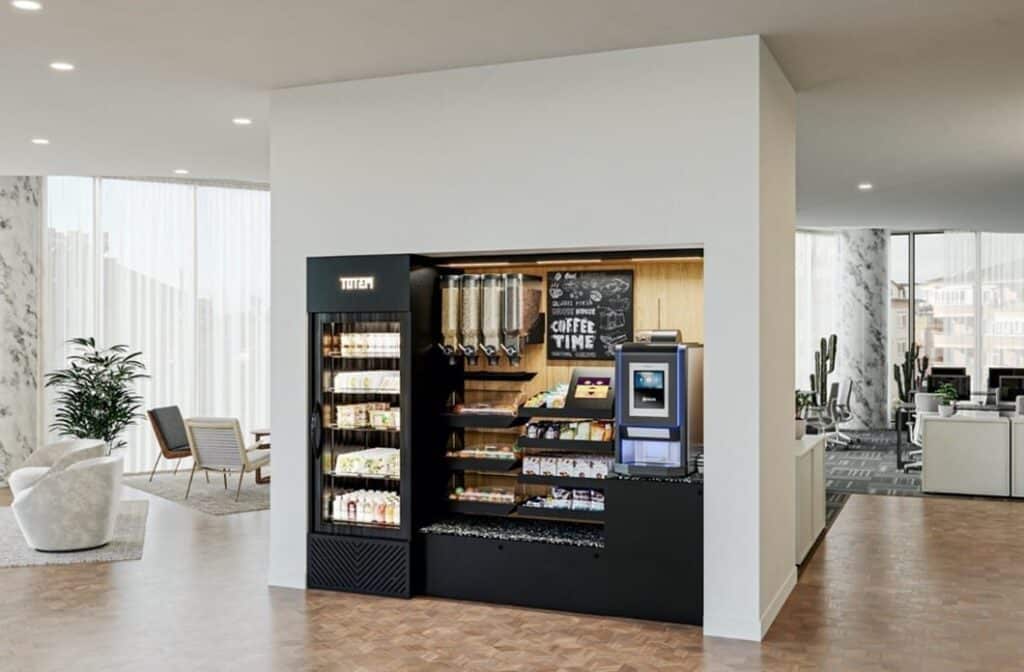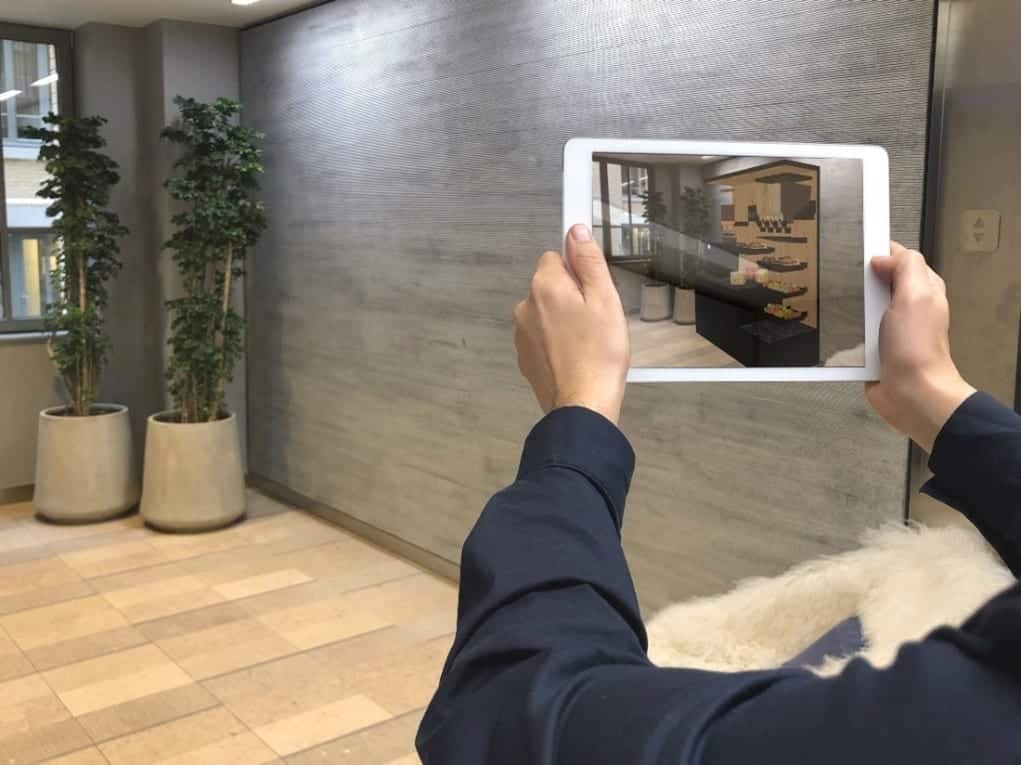Totem brings conviviality back into the workplace
Totem, startup française créée en 2017 par Rafael de Lavergne et Pierre Gallet élève le principe de modularité de service à un niveau supérieur. Derrière l’entreprise de restauration se cache une pépite tech aux innovations que l’on constate jusque dans son entrepôt de 1 600m2, entièrement optimisé et connecté (6 millions euros en levée de fonds, 30 salariés, 1000 références de produits).
Totem creates connected and personalized dining spaces directly within company offices.
Totem leverages corporate catering as a visible marker of a company culture that listens to its employees. Member companies have access to around 1,000 product options, ranging from apples to coconut curry dishes, which they can pre-order to stock their Totem micro-store. The collaboration between Totem and Onepoint began in 2018, with a focus on refining their brand. Through co-design workshops led by Onepoint, the startup’s identity was honed, including the selection of materials, colors, patterns, and symbols.At Totem, we were looking for a mix of practicality and a premium design in the creation of this new store furniture — and that’s exactly what we found in our collaboration with Onepoint.
Numerous full-scale prototypes were created in Onepoint’s FabLab to bring to life the furniture that would embody the brand’s values and give shape to the “totem” — a central gathering point around the coffee machine that hosts all of the startup’s food services.
The design phase led by Onepoint’s teams unfolded in three key steps:
- Product design through prototyping
- Creation of the graphic identity
- Production of photorealistic 3D visuals of the furniture
- 7 co-design workshops
- 52 3D modelisations
- 20 photorealistic renderings
Building on the success of their first collaboration, Totem and Onepoint decided in February 2020 to continue working together. This time, the goal was to define the use cases and product design for an even more ambitious concept: the Totem micro-store.
Through a new series of workshops at Onepoint’s Parisian FabLab, six major modules were envisioned. By combining these modules, the result is clear: the convenience of a full-service cafeteria within the limited footprint of a simple coffee corner.

To define the overall design of this new unit, a technical design phase was launched. It focused on key aspects such as modularity and the object’s overall functionality — including restocking, waste management, and more.
Initial previews of the furniture were developed using both 3D and physical prototypes, built in Onepoint’s FabLab and the workshops of SADIM, the industrial partner selected for production.
With its folded steel sheet structure, recycled plastic worktops, and decorative aluminum panels, we succeeded in creating a piece of furniture that is nearly 100% recyclable.
As with the first prototypes, photorealistic 3D renderings were created at Totem’s request to generate various visuals showcasing the new model.
These high-fidelity visuals have proven to be a real asset with clients, as they allow the concept to be placed in virtual environments and demonstrate how the unit can adapt to different settings, illustrating a range of possible configurations.
In the final pre-deployment phase of the micro-stores, Onepoint optimized all 3D models for use with Apple’s ARKit, enabling Totem’s sales team to project modular setups directly into the premises of prospective clients through augmented reality.

Our clients and teams come together to innovate and create greater value — this is the seamless, end-to-end support approach we foster.
By combining the perspectives of experts across various design disciplines (product, graphic, 3D), we were able to deliver a tailored response to Totem’s challenges, enabling not only the successful launch of their product but paving the way for future developments as well.
A thorough analysis of existing market solutions, combined with workshops involving technical experts from the production side and Onepoint on ideation, design, and technical aspects, led to this new store concept — which we hope to deploy in hundreds of companies starting in 2021.